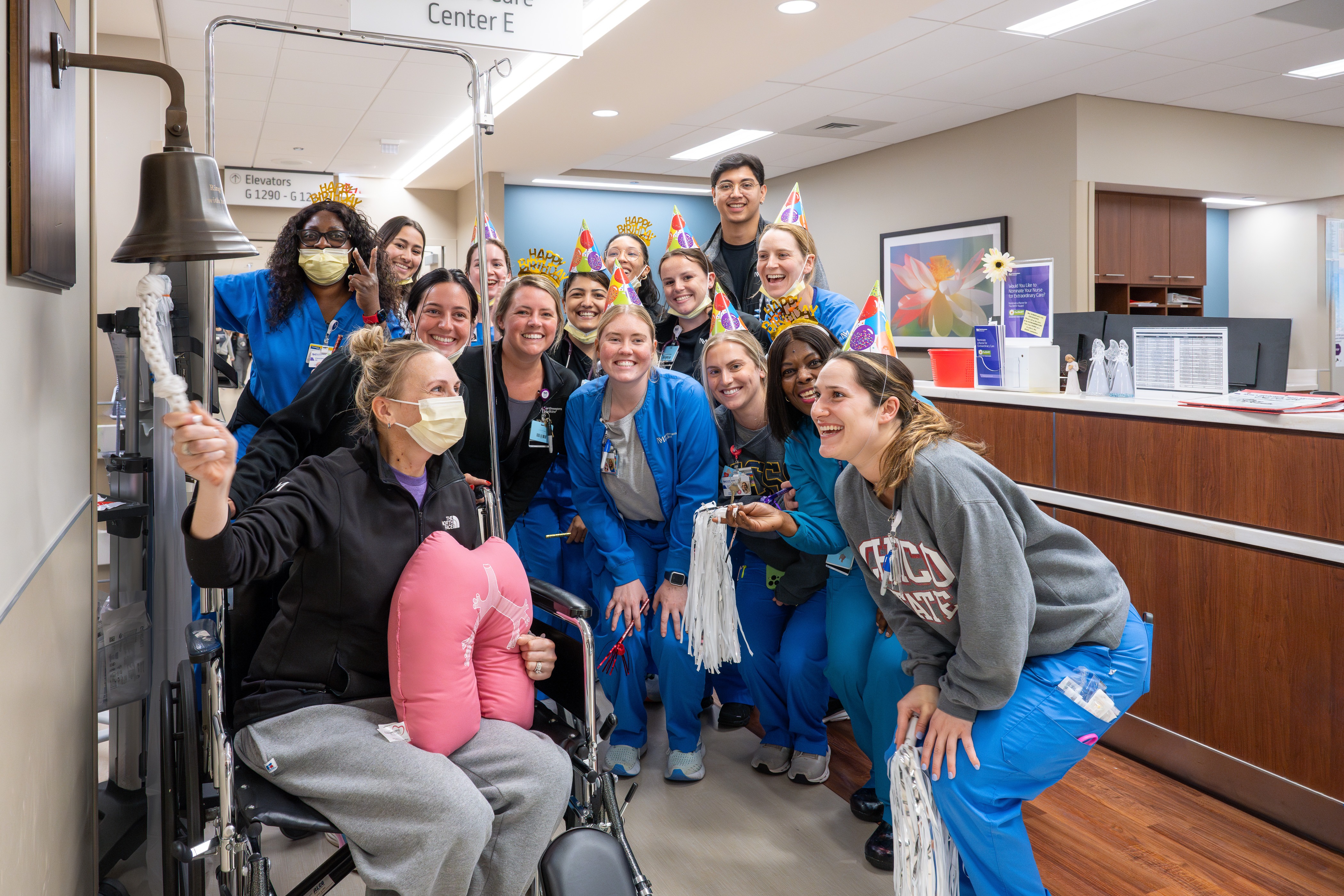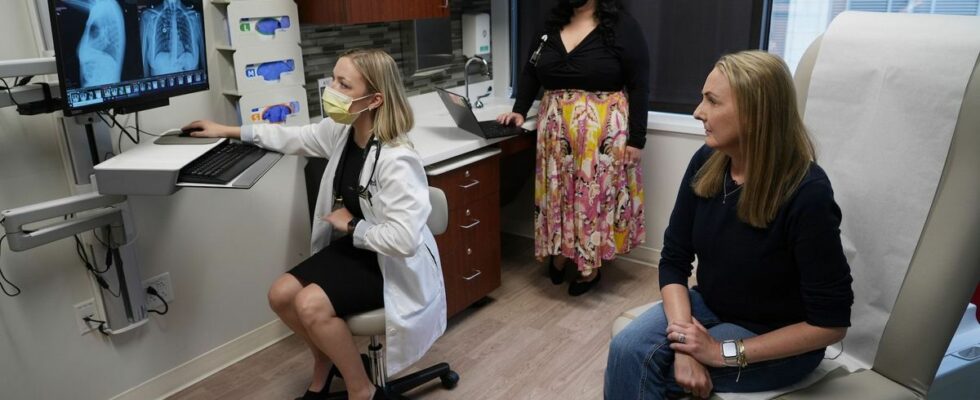Published on
updated on
Reading 4 min.
An unprecedented medical intervention has just been carried out by surgeons at Northwestern Medicine in Chicago. A patient with stage 4 colorectal cancer which had spread to the lungs received a double lung transplant. A week later, she was released from the hospital without any trace of cancer.
This world first opens the way to new hope for patients with metastatic cancers, previously considered incurable.
Who is the patient and why is this procedure unique?
Amanda “Mandy” Wilk, 42, had been battling stage 4 colorectal cancer since 2017, which initially spread to her liver. After various treatments (a partial colon resection, chemotherapy, liver ablations and radiotherapy beads on the liver), she received a liver transplant from her younger brother, Adam, in 2020. But six months later, the cancer returned – this time in the lungs, a very pejorative sign of progression of the disease.
“I contacted almost every major health system in the country, and they all told me there was nothing more they could do,” Mandy said. “I believe in the future and wasn’t going to take ‘no’ for an answer, so when I inquired about Northwestern Medicine’s DREAM program, I was thrilled that they were ready and willing to help me to live.”
Well, he was lucky because on June 3, 2024, Mandy received new lungs and was able to leave Northwestern Memorial Hospital a week later without a trace of cancer, on June 10, her 42nd birthday.
A world first and tremendous hope for patients
In a meticulously planned, more than 7-hour operation, Northwestern Medicine’s surgical team meticulously removed Mandy’s cancerous lungs without allowing any cancer cells to spread into her bloodstream, then transplanted the new lungs. Based on all available tests (CT scans, positron emission tomography scans, and molecular analyzes of the cancerous DNA circulating in Mandy’s blood), the team found no residual signs of cancer in her body.
“Unlike the conventional sequential transplant technique, this innovative technique involves placing the patient on a complete heart and lung bypass, gently removing both cancerous lungs at the same time as well as the lymph nodes, washing the airways and the chest cavity to eliminate the cancer, then transplant new lungs” said Dr. Ankit Bharat, Head of Thoracic Surgery.
No more trace of cancer
“These patients may have billions of cancer cells in their lungs, so we must be extremely meticulous to not allow any cells to spread into the patient’s chest cavity or bloodstream. We believe this technique can help reduce the risk of recurrence” specifies Dr Bharat.
After 8 years of fighting this cancer, Mandy rang the bell symbolizing the end of her cancer treatment. She currently has no signs of cancer in her body and does not need further treatment. She even challenged herself to one day run a marathon.

Is she definitely cured? “Although we are optimistic about its future, it is important to approach this question with cautious optimism, as additional research is needed to understand long-term outcomes” cautiously declare the authors of this first.
This surgical feat has attracted the attention of medical experts around the world, who welcome this breakthrough. This revolutionary operation could change the way patients with metastatic cancers are treated. Until now, transplants were generally excluded for these patients due to the high risk of cancer recurrence. But according to Dr. Bharat, this transplant could become a viable option for some patients provided the cancer is limited to a single organ and other forms of treatment have failed.
Although this procedure is not without risks, it could offer a new chance of survival for patients with cancers metastatic to the lungs. However, experts agree that more research and testing will be needed before this technique can be widely adopted. This is the object of DREAM program from Northwestern Medicine.
A medical breakthrough hailed around the world
To date, surgeons have successfully performed more than 40 lung transplants in cancer patients under the DREAM program. Outcomes of patients in the program are tracked in a research registry.
“While we are encouraged by success stories like Mandy’s, it is important to recognize that this is a highly specialized procedure that may not be suitable for all patients with metastatic cancer“added Dr. Bharat.”Careful assessment and selection is essential to ensure the best possible results“.
Furthermore, only long-term follow-up will ensure the success of the procedure for these very meticulously selected patients. But this announcement offers a glimmer of hope for those who find themselves in the terminal stages of the disease.
